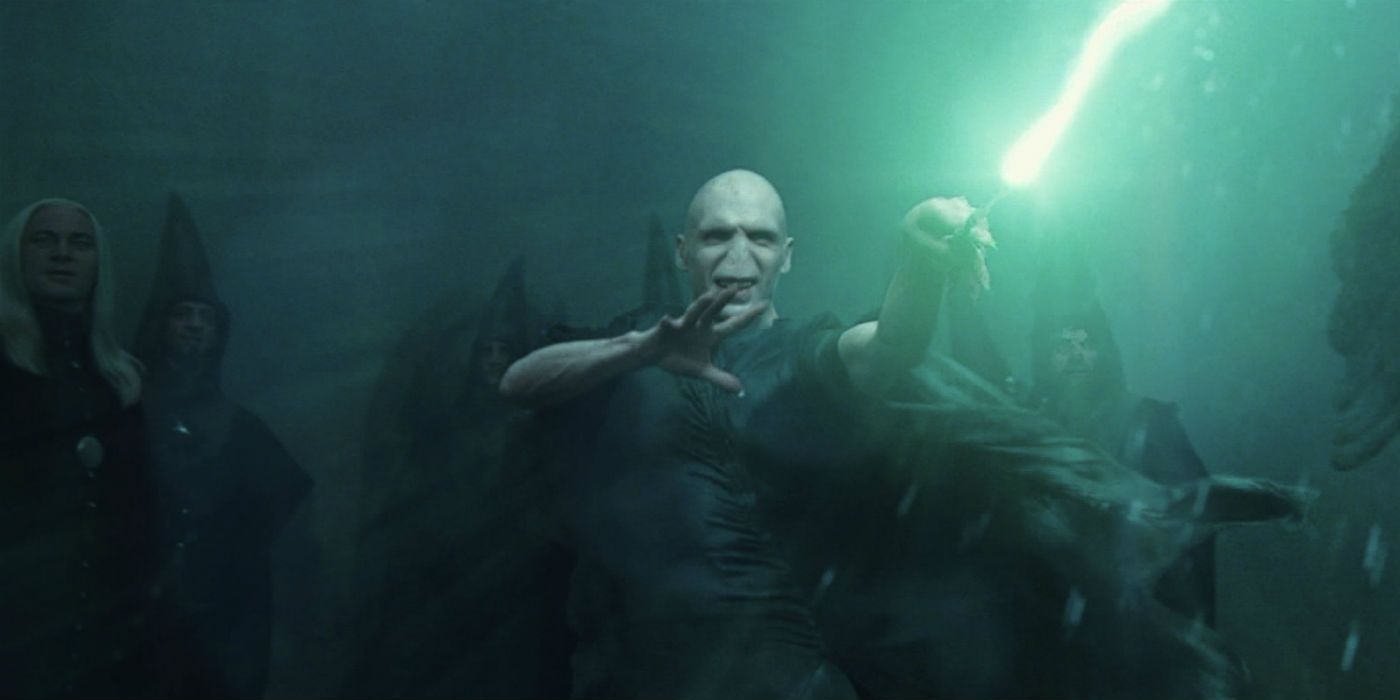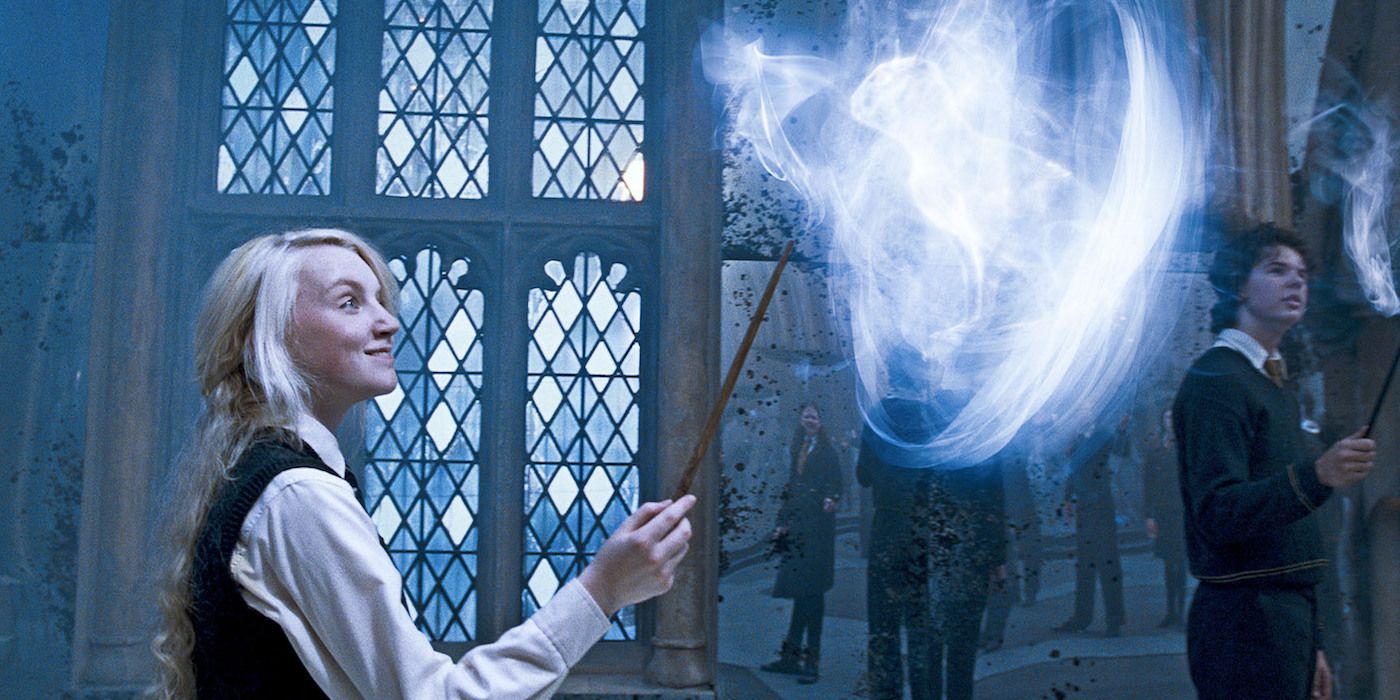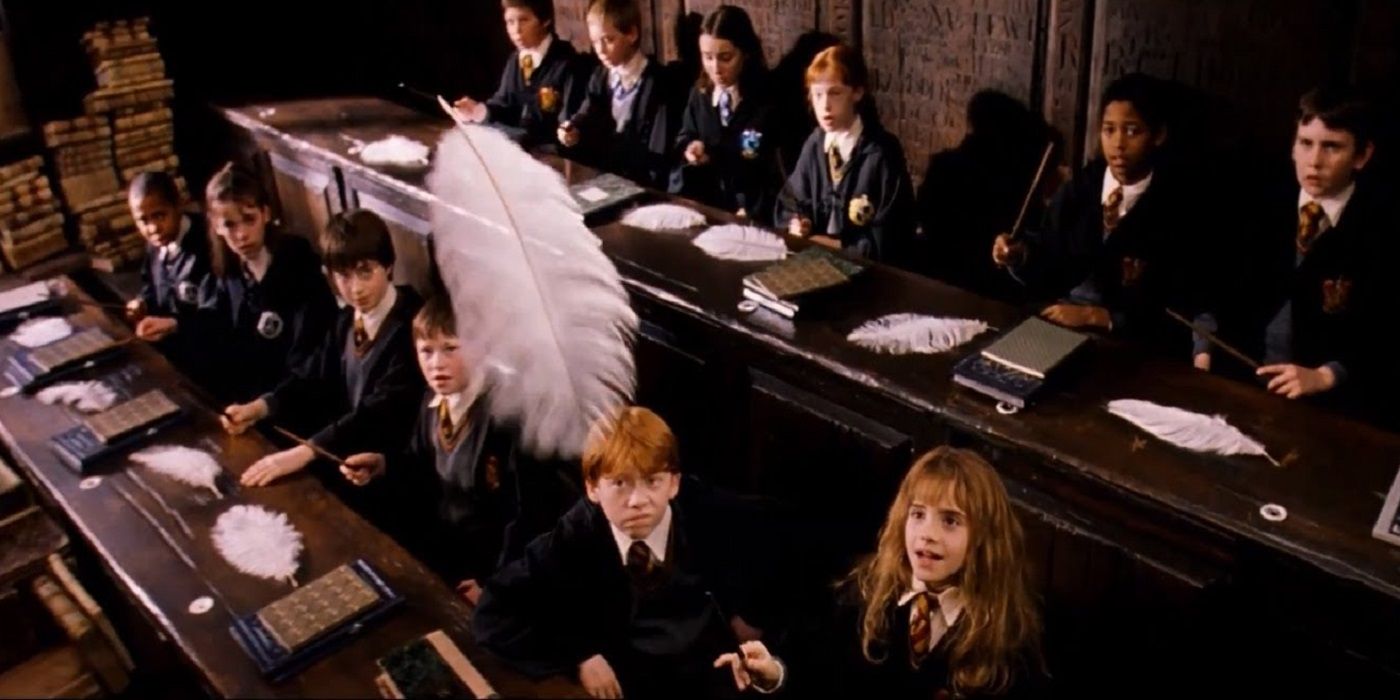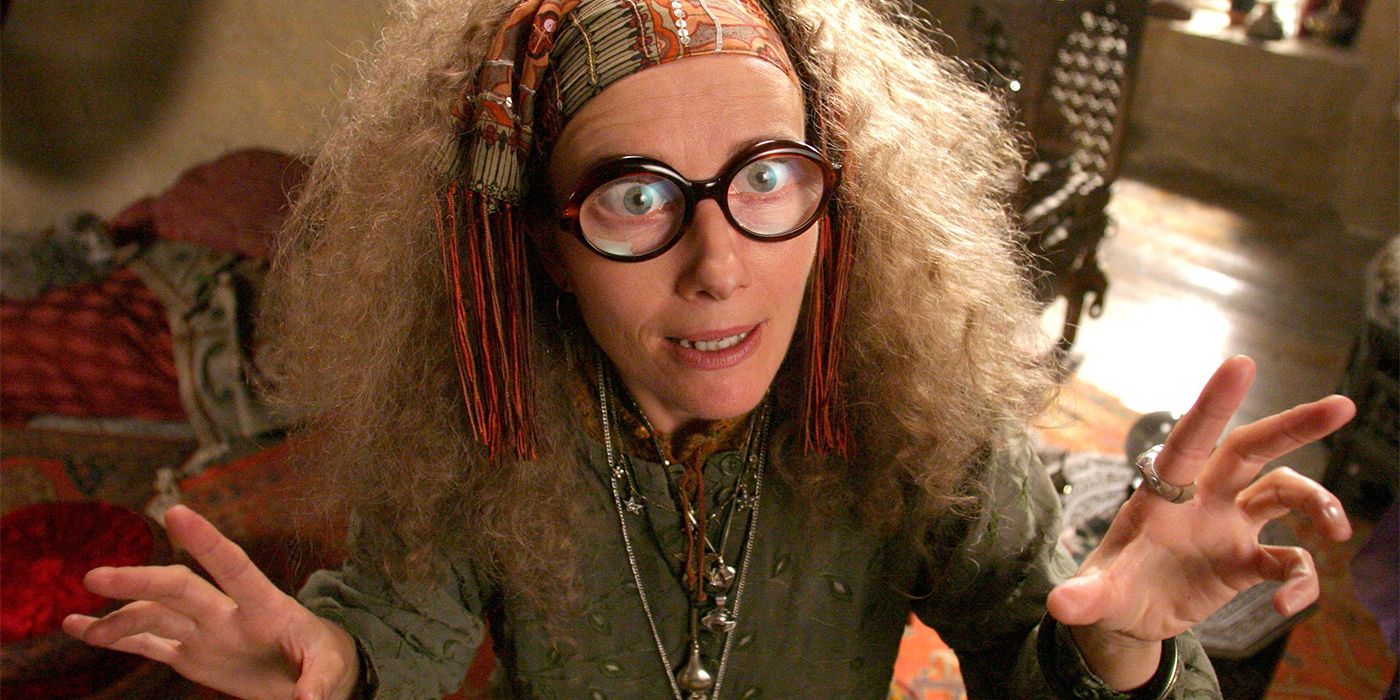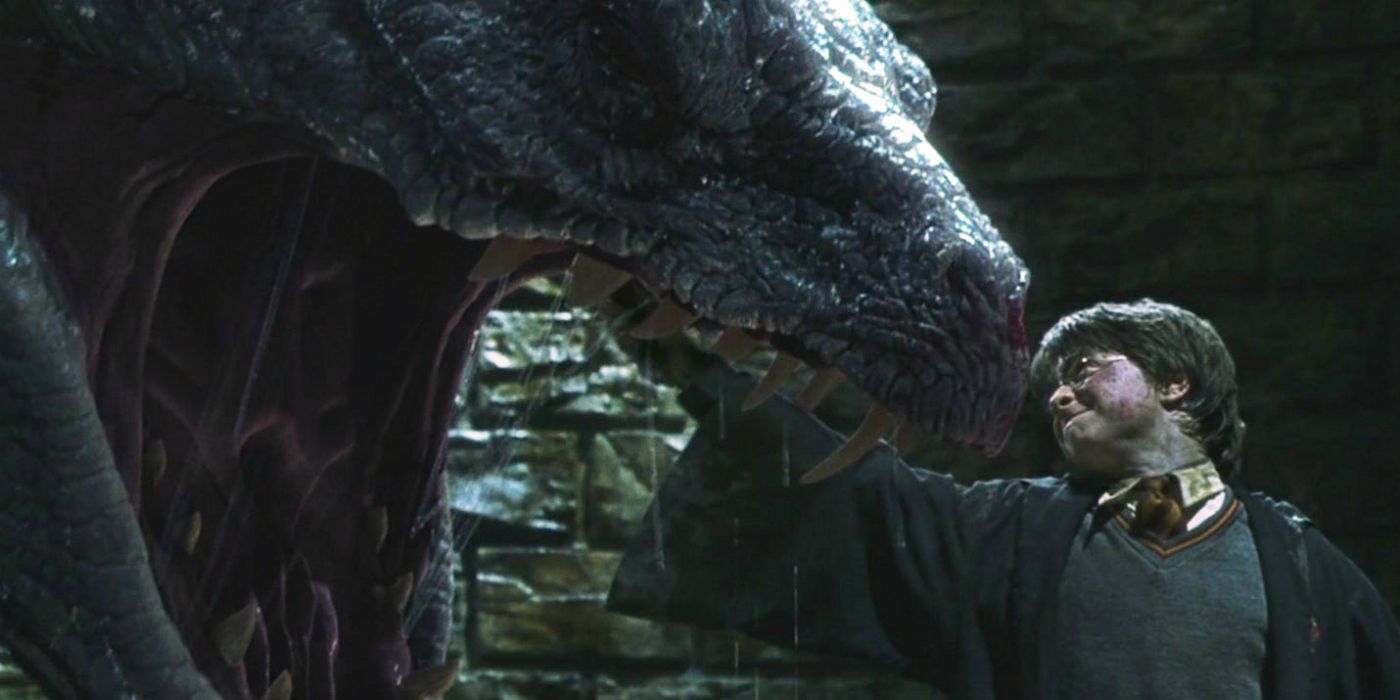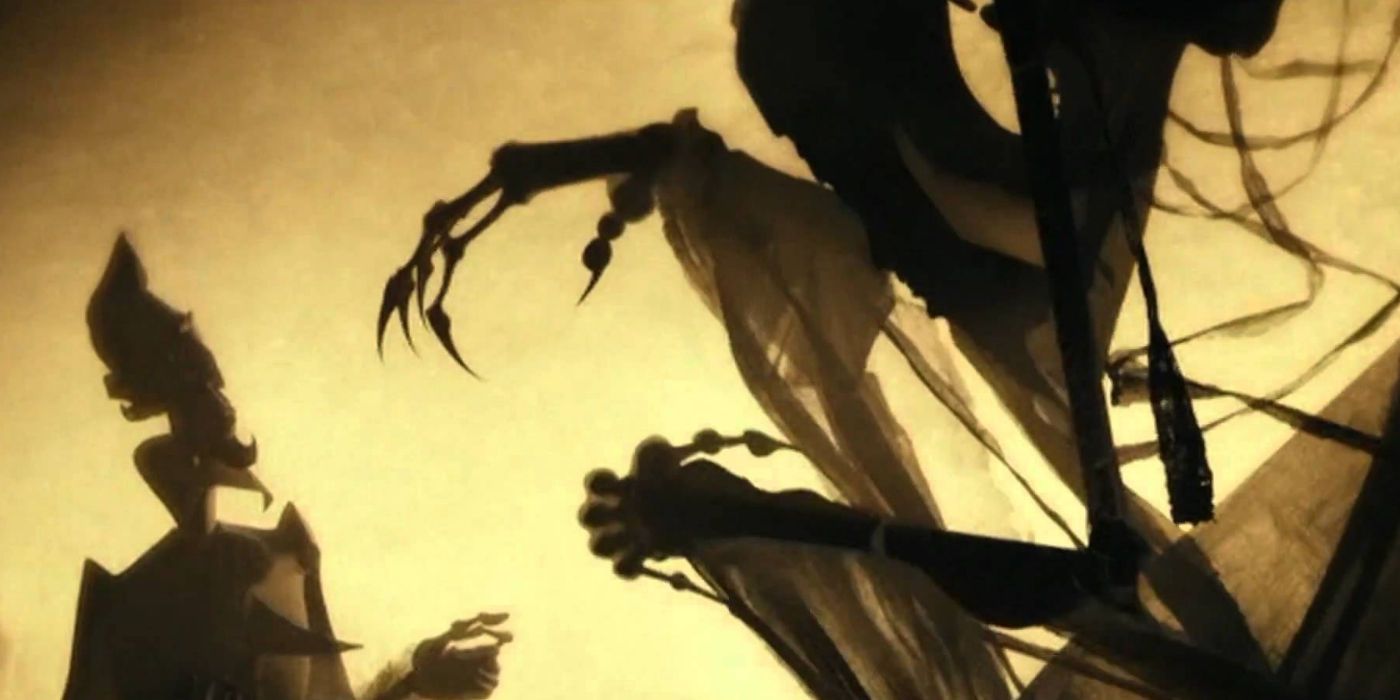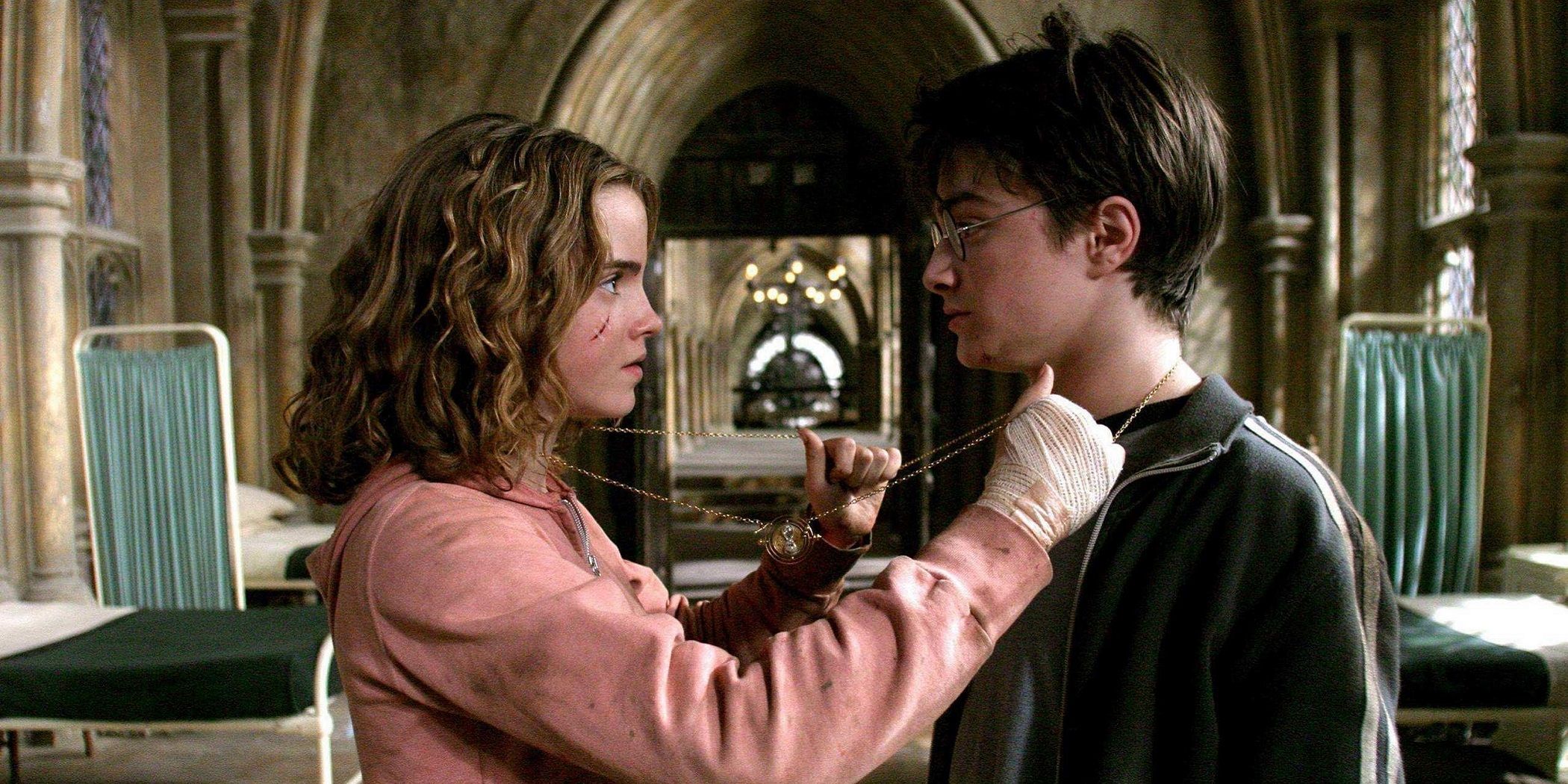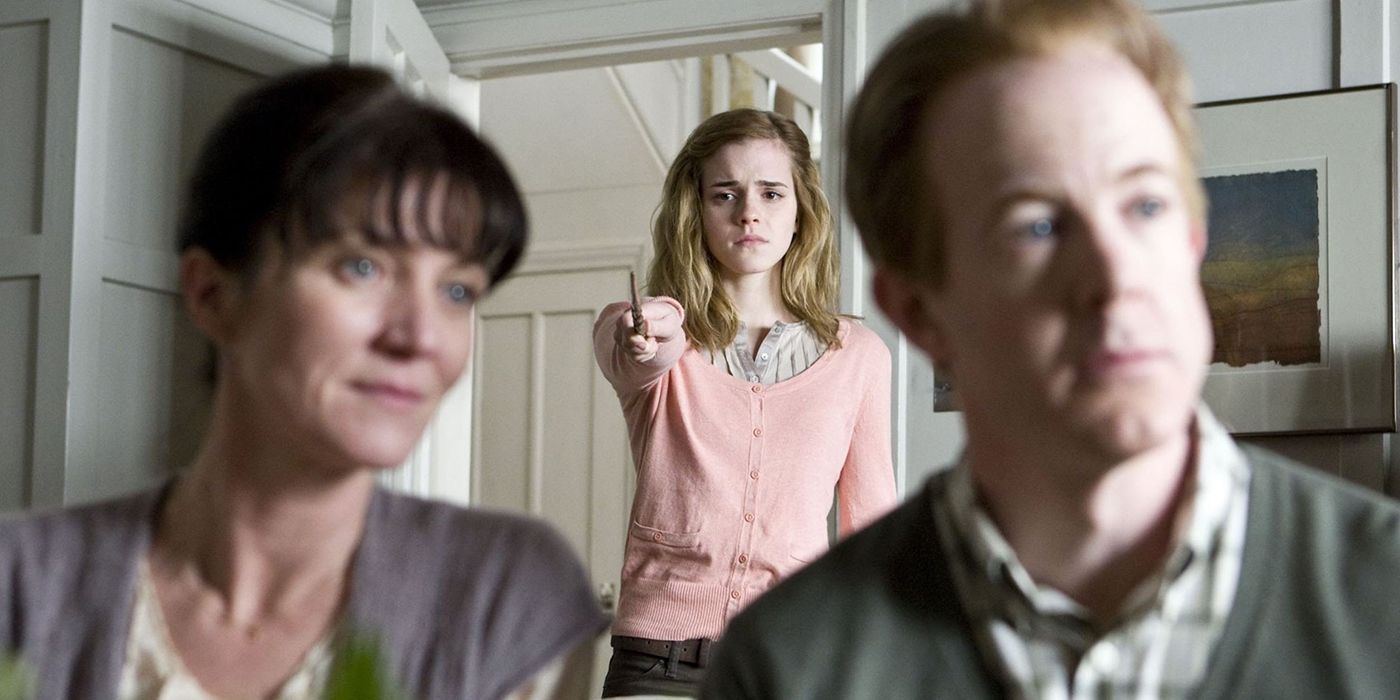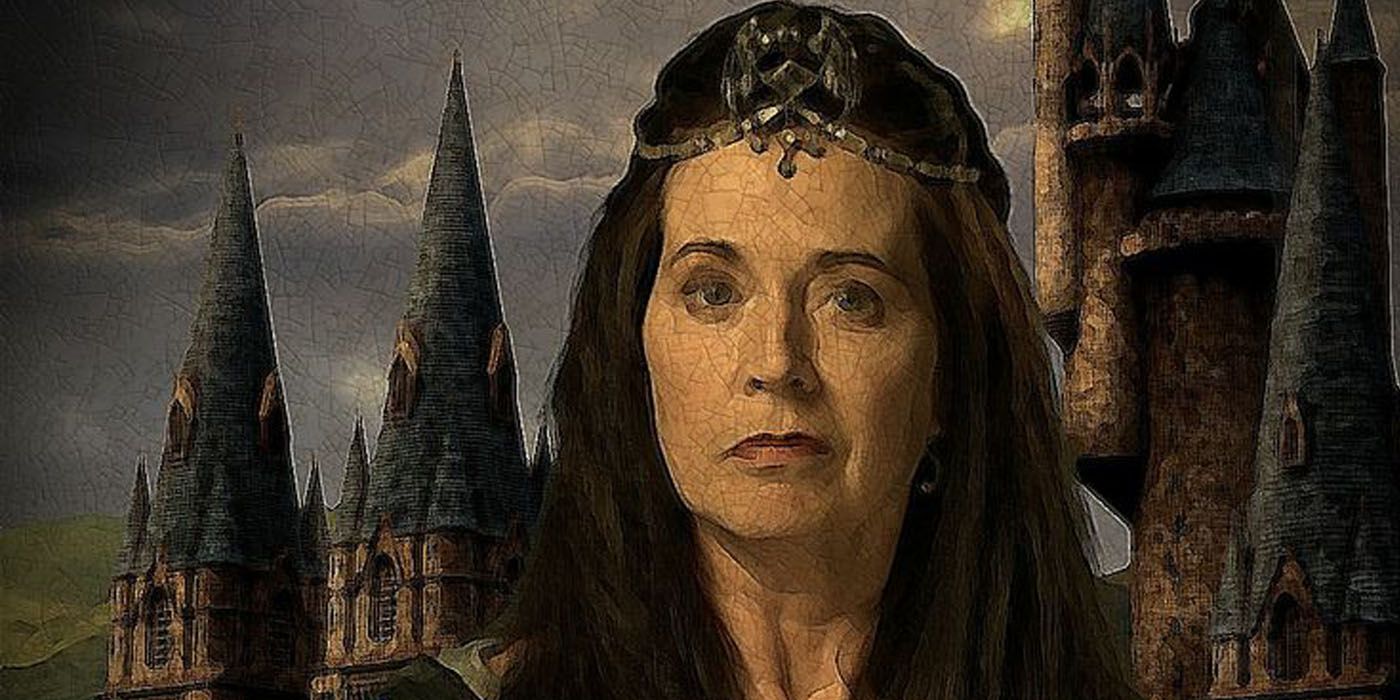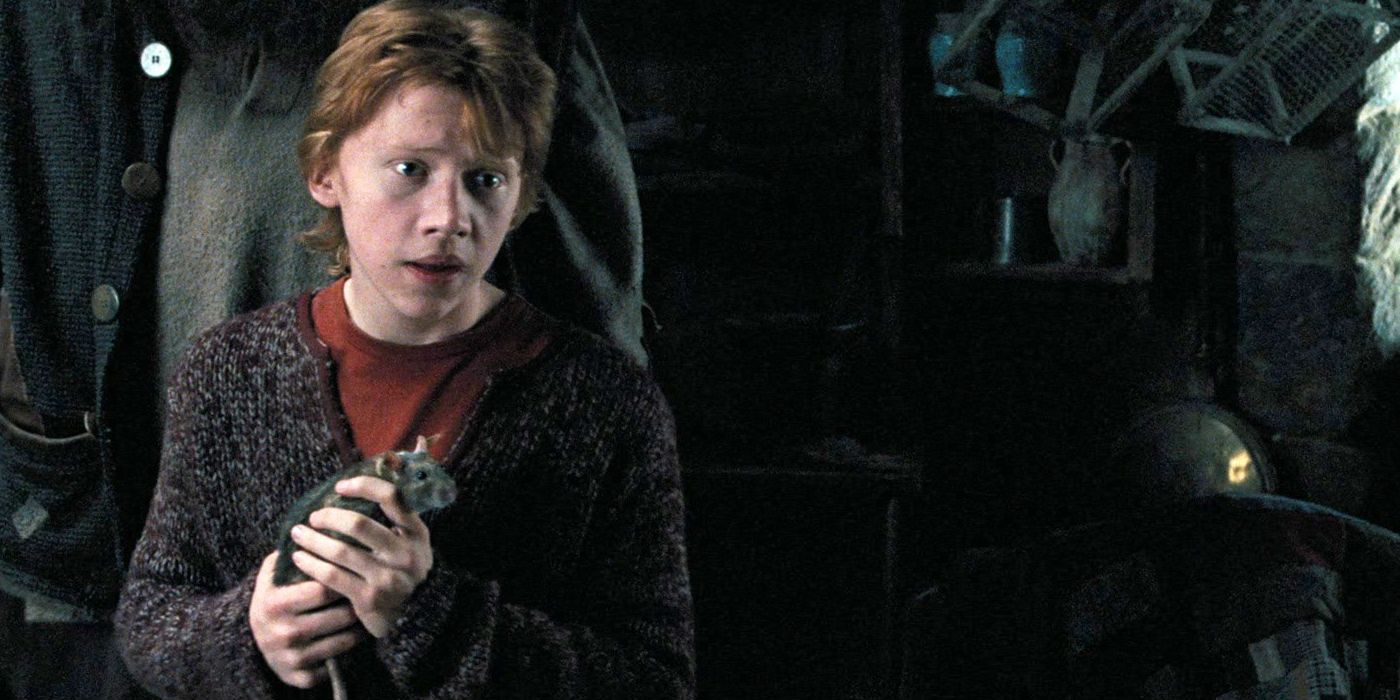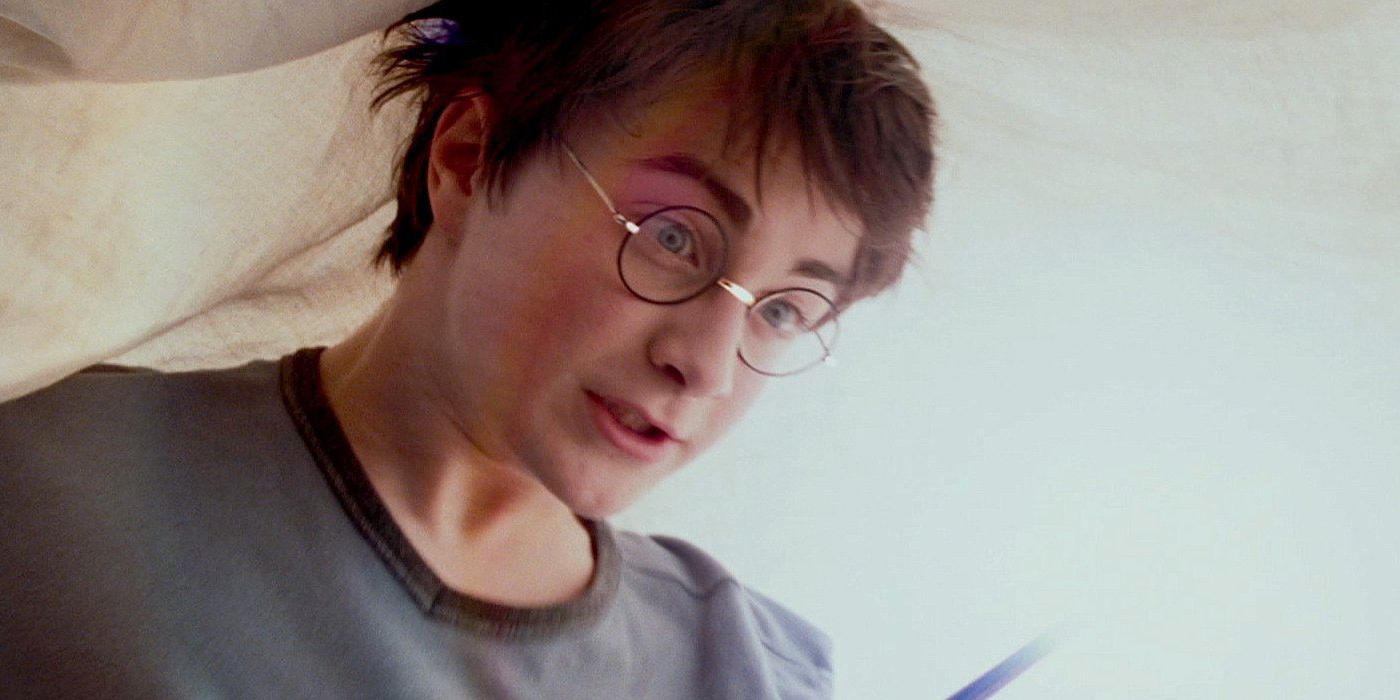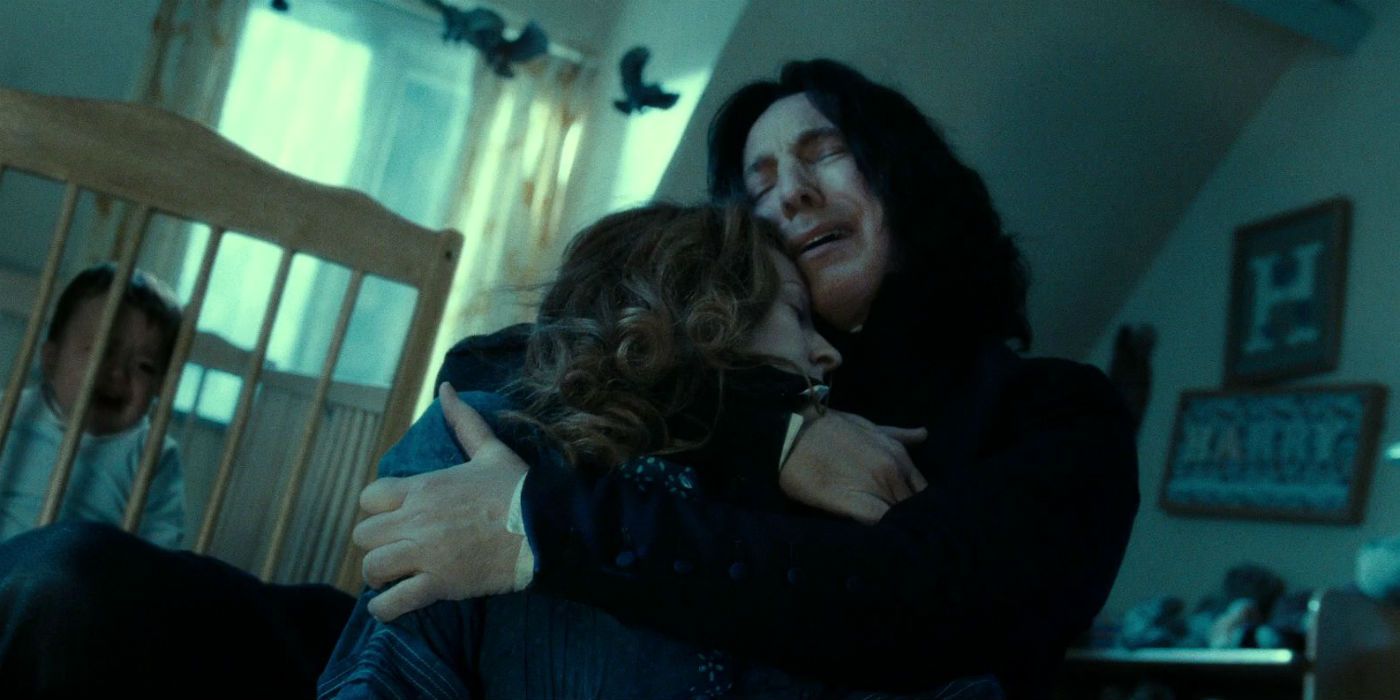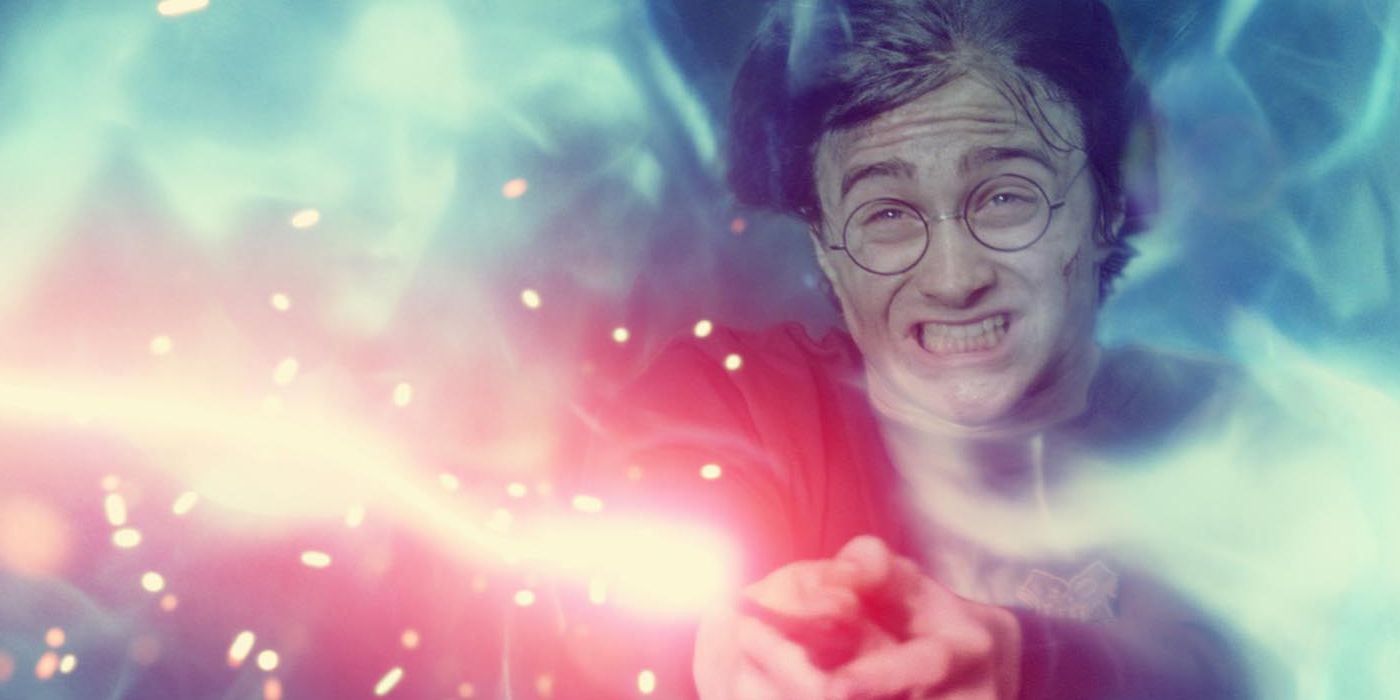There’s scant few properties more cherished that the Harry Potter series. Whether fans were introduced to the world of Harry through the books, movies, or a combination of both, the brand has inspired more loyalty that almost anything else. It’s an adoration that is well deserved and earned. If one element can be singled out to explain Harry Potter’s success it’s the magic.
Magic, witches, and wizards are not unique concepts. Yet while experiencing the Wizarding World of Harry Potter they feel that way. J.K. Rowling’s world is so layered, creative, and well-thought out that it makes very old ideas feel completely fresh. This is not even to mention the brand-new lore and ideas that Harry Potter has created.
The rules and stories surrounding magic in Harry Potter are impressive and fantastic. They are, however, not flawless. Some of it is by magic’s very mysterious nature but still there are more than few pieces of magic lore in Harry Potter that defy all logic or reason.
These aren’t problems with the stories or even really flaws with the writing. If every bit of magic was explained Harry Potter would likely be dry and exhausting. This isn't a serious condemnation of the world of Harry Potter. It's meant to be a fun look at certain elements of the series that just seem bizarrely out-of-place and confusing.
With that in mind, here are the 15 Things About Magic in Harry Potter That Make No Sense.
There Are Only Three Unforgivable Curses
It’s universally acknowledged, socially and legally, in the Wizard World that there are three curses worse than all the rest. They're The Killing Curse (self-explanatory), The Imperio Curse (causes mind and body control), and The Crucio Curse (creates intense and horrific pain). It’s understandable why these are considered the worst of the worst but it’s odd that there’s only three of them.
Not to get too morbid, but it seems like there should be way more than three curses that are social and legally unacceptable. Sectumsempra causes bodily pain and possible death, since it rips wounds in people’s bodies, but it’s not considered as one of the worst spells that a wand user can cast. It’s not even well-known, as Harry stumbles upon it in the book of the Half-Blood Prince.
For the sake of Harry Potter’s family-friendly nature, it’s probably best Rowling stopped at three curses. However, logically, there should be more.
The Patronus Charm is One of the Most Difficult Spells to Perform
Near the very top of Harry’s wizarding résumé is his ability to perform a Patronus Charm. It’s mentioned several times how difficult it is for anyone-- especially someone as young as Harry-- to create a Patronus. Yet it’s never really explored why the Patronus is so tricky.
It’s well established that all it takes to create a Patronus is to think of a truly happy memory and say the words. This being difficult makes sense when faced with a dementor. That's a beautiful metaphor for depression. However, even when no dementor is around it’s hard for people to create a Patronus. Hermione particularly struggles with it in Order of the Phoenix.
The only possible explanation is that everyone in the Harry Potter universe in the depths of depression, which is a sad and nihilistic worldview for such a magical series.
Inventing Spells Out of Literally Nothing
It’s a rare thing in the Harry Potter universe but it’s been established that it’s possible for witches and wizards to invent spells. It’s heavily implied, if not outright stated, that Snape is one of them during Half-Blood Prince. The real mystery though is how that’s even possible.
Inventing new potions or, like Dumbledore, uses from dragon’s blood makes sense. Potions and dragon blood are tangible things that can be used and experimented with in weird combinations. Magic and spells are ethereal, though. It doesn’t seem possible, given what we know of magic, for someone to just create a new spell.
The only possible and plausible explanation is that witch or wizard can just wave their wand, shout some vaguely Latin phrase and hope something happens. If true, that makes Snape’s feats seem a little less impressive.
Is Divination Really a Teachable Skill?
It’s a bit of running joke throughout the series that Divination is regarded as useless. McGonagall has no time to for the subject and Dumbledore even admits he was going to remove from the school curriculum before he met Trelawney.
Divination is used as a refugee spot for its two teachers in the books. Yet that begs the question if Divination really ever was (or is) a teachable skill.
It seems like it’s something that magical people are born with; they either have it or not. Although most of the series is told from Harry’s perspective and he’s not exactly the best student. In fact, Lavender Brown and Parvati Patil seem to learn something from Divination.
It’s a totally confusing situation. Either Harry doesn’t care and doesn’t learn anything, while Lavender and Parvati thrive, or it’s just a fake subject that has no business being taught, like gym in regular schools.
The Impossible Convenience of Basilisk Fangs and Horcruxes
In Deathly Hallows, the core trio has two chief problems. They have to find all the horcruxes and (more importantly) locate a way to destroy them. Luckily it’s discovered-- by Hermione-- that Basilisk fang venom is an easy way to destroy parts of people’s souls. Hermione never manages to explain why or how that’s possible, though.
The obvious reason is that Harry destroyed a Horcrux in Chamber of Secrets with a Basilisk fang and the series is just keeping up the continuity.
Looking at things from an outside perspective, it’s rather obvious that J.K. Rowling just picked the most convenient items for Horcrux deadly materials. There's really no other logical explanation for why Basilik fangs, out of everything, kill Horcruxes.
Well there's that and it’s really cool that the trio use the Sword of Gryffindor, imbued with venom, to go on their hunting quest.
The Deathly Hallows Being Able to Defeat Death
No one character has ever possessed all of the Hallows at once. At separate times, Harry gets all of them, but he never has all three on him at once. J.K. Rowling never has to answer if the legend of the Hallows is true and whether or not the owner of all three can “defeat death.”
However, all of the other legends about the Hallows turn out to be true. The cloak is impregnable (outside of a weird moment with Moody’s eye), The Elder Wand is the most powerful one and the Resurrection Stone brings back dead people. It’s reasonable to assume that the “defeat truth” part of the Hallows is also true.
Yet there’s no explanation given for how it could happen. Would Harry just have gone Super Saiyan and become immortal if he had all three Hallows at once? It’s not something that should’ve happen but it seems like it could’ve happened.
Everyone Ignores the Existence of Time Turners
The Time Turners are an easy joke to make at the expense of the Harry Potter universe. Harry’s problems seem much less daunting when time travel is a thing that exists.
The series does explain why Harry and the gang don’t use Time Turners after the third book. The Ministry’s entire supply is destroyed in Order of the Phoenix.
However, this doesn’t explain why everyone in the government wasn't using Time Turners before that point. They were available enough that a fourteen-year-old witch could use one for her schoolwork. It’s true that they’re dangerous... but so is Voldemort. Nothing should’ve been an issue for the Ministry when they had time travel at their disposal.
Delving into it further, it also seems odd that Time Turners are things that exist at all and were mass produced. This seems like the work of a god, not a very talented witch or wizard.
Legilimency and Obliviate Aren’t as Bad as The Imperius Curse
The Imperius Curse is recognized as one of the worst things in the Harry Potter universe. It’s an Unforgivable curse and it allows the caster to enslave the mind and body of another. It makes logical and moral sense why the Imperius Curse is so infamous.
Yet using Legilimency (mind reading) and Obliviate (memory wiping) is perfectly acceptable in the Wizarding World. The Ministry hands out Obliviate curses like candy to Muggles to keep their existence a secret. There’s no way that’s OK. All three spells are an invasion of someone’s mind.
It can’t even be justified that Legilmency and Oblibate can be resisted. Harry nearly beats the Imperius Curse in Goblet of Fire with no training. It’s possible to fight all three curses, this doesn’t make any of them more socially acceptable.
Owls Are The Best At Delivering Mail
Real-life owls are nasty and rather violent winged creatures. There’s no way that any reasonable person would have an owl as a pet. So obviously the owls in Harry Potter are magic. Yet even accepting that Hedwig and the rest are different from most winged beasts, it’s hard to understand why they’re so excellent at delivering mail.
Owls are able to locate people that they’ve never met or go to their locations their owners have never even been before, which is insanity. Hedwig repeatedly manages to find Sirius when he’s on the run from the law. That’s bonkers.
If Hedwig’s hunting is normal, the Ministry should be sending all kinds of mail to their fugitives with tracking spells. Of course, they don’t because they’re idiots and that would ruin the series. Still, owls are way, way too skilled at their jobs.
Everything About Portraits
The lore around portraits is so confusing that J.K. Rowling has had to publicly clarify what exactly they are and how they work. While all respect should be paid to Rowling for attempting to make sense of it (and many other reasons), these staples of the Harry Potter universe are still way too confusing.
According to Rowling, portraits are just imprints of the subject’s personality and experiences. They don’t really have their memories or knowledge. This explains nothing about Dumbledore’s portrait in Deathly Hallows.
Dumbledore is seen helping and guiding Snape throughout Snape's plans with his portrait after his death. When Harry talks to him at the end of the book, Dumbledore understands everything and openly weeps. Everything about the portrait is like the deceased wizard, he’s just confined to a frame.
Perhaps portraits are sentient beings with feelings and thoughts, which is equally terrifying and confusing.
The Government’s Animagi Registry
Animagi are, arguably, one of the cooler elements of the Harry Potter universe. The ability to turn into an animal at will is a unique and desirable skill.
It also helps that the known Animagi are also some of the best and most beloved characters. Nevertheless, there’s a nagging weird element of the Animagi-- they’re supposed to be registered with the Ministry.
Given everything else going on in the Wizarding World it seems bizarre that Animagi are singled out in this way. It’s not as if there is a registry of all accomplished Legilimens or potion makers-- both of which seem more dangerous than Animagi.
In context of the books as pieces of fiction, Animagi are registered so it’s a big reveal when we discover that Sirius is one. When viewing it as a real world construct, though, the registry is just bizarre.
Nonverbal Magic is Nearly Impossible
Towards the end of the series, Harry starts practicing with nonverbal magic. In fact, it's required in Snape’s Defense Against the Dark Arts classes to perform spells without speaking the incantation. However, Harry struggles with it and only manages to perform a couple of spells nonverbally.
Nonverbal magic is a compelling wrinkle added to the series’ lore but it’s never made clear why it’s so hard. It’s obvious that the wand is the conduit for all magic and it forms a special bond with its user.
There’s no reason why the wand needs the verbal command to perform a spell. In reality, given how important the bond between user and wand is in Harry Potter, it should be easier to perform nonverbal spells because that feels more intimate.
That’s, unfortunately, not the case and Harry defeats Voldemort without ever mastering this pretty crucial skill.
The Specifics and Age Limit of the Trace
It’s set up right at the start of the saga that the Ministry can detect magic near underage wizards. It’s not until the last installment, The Deathly Hallows, where that is properly explained. Every underage witch or wizard has The Trace on them, which disappears when they turn 17. There’s a lot to unpack with this fact and all of its confounding.
Seventeen is such an arbitrary and odd age for magical people to come of age. (Putting aside the fact that Rowling wanted Harry free and out of Hogwarts after his sixth year.) Furthermore, it doesn’t make sense at all how The Trace is placed. It’s obvious a charm that is cast on the underage magicians. So who is doing it and how?
The Trace seems to be one of the most oddly powerful spells in Harry Potter. Somehow there’s next to nothing known about it.
No One Died For Someone Else Before Lily and Harry
The Harry Potter series is built on one act: a mother (who could’ve saved herself) dying for her son. Lily Potter’s sacrifice prevents Harry from dying at Voldemort’s hands and causes the dark wizard’s first demise. It’s a beautiful moment of a mother’s love… that makes almost no sense.
Lily’s sacrifice is an unprecedented event. According to the lore of the world, no one has stepped in front a Killing Curse met for someone else. This is preposterous. With several well-known wars in the Wizarding World it's impossible that no one sacrificed themselves for another.
It gets even weirder in Deathly Hallows when Harry sacrifices himself for the entirety of Hogwarts. Harry doesn’t even die (technically) but afterwards Voldemort is unable to hurt anyone at the Battle of Hogwarts. This is all because Harry died for them. It’s poetic but totally illogical.
Priori Incantatem... In the Movies
In the books, Priori Incantatem is like most of Harry Potter’s wand lore. It’s strange, but very well explained. Due to the twin cores of Harry and Voldemort’s wands, any fight between them is a magical standstill. It’s something that only happens with them and their two wands. In the movies, things are a lot different.
For starters, Priori Incantatem is never explained... at all. Dumbledore dramatically whispers the phrase in Goblet of Fire and never goes further. Worst of all, wands connecting with each other happens in nearly every wizarding duel from that point forward.
The whole situation makes Voldemort’s search for the Elder Wand in Deathly Hallows even more power hungry and makes Dumbledore look like a secretive werido. Voldemort was power-hungry and Dumbledore did keep too many secrets but this is just a strange and unnecessary mystery.
---
What are some of your pet peeves with magic in Harry Potter? Do you agree with this list or can any of these be explained? Sound off in the comments!


